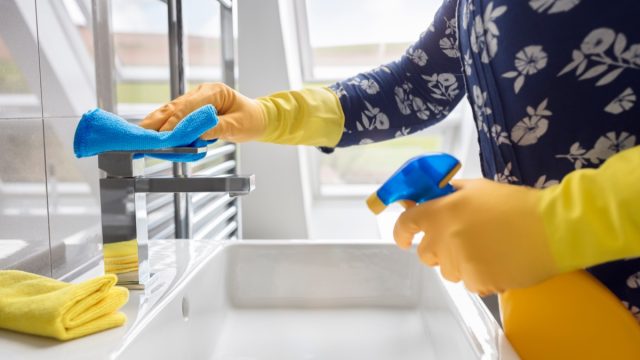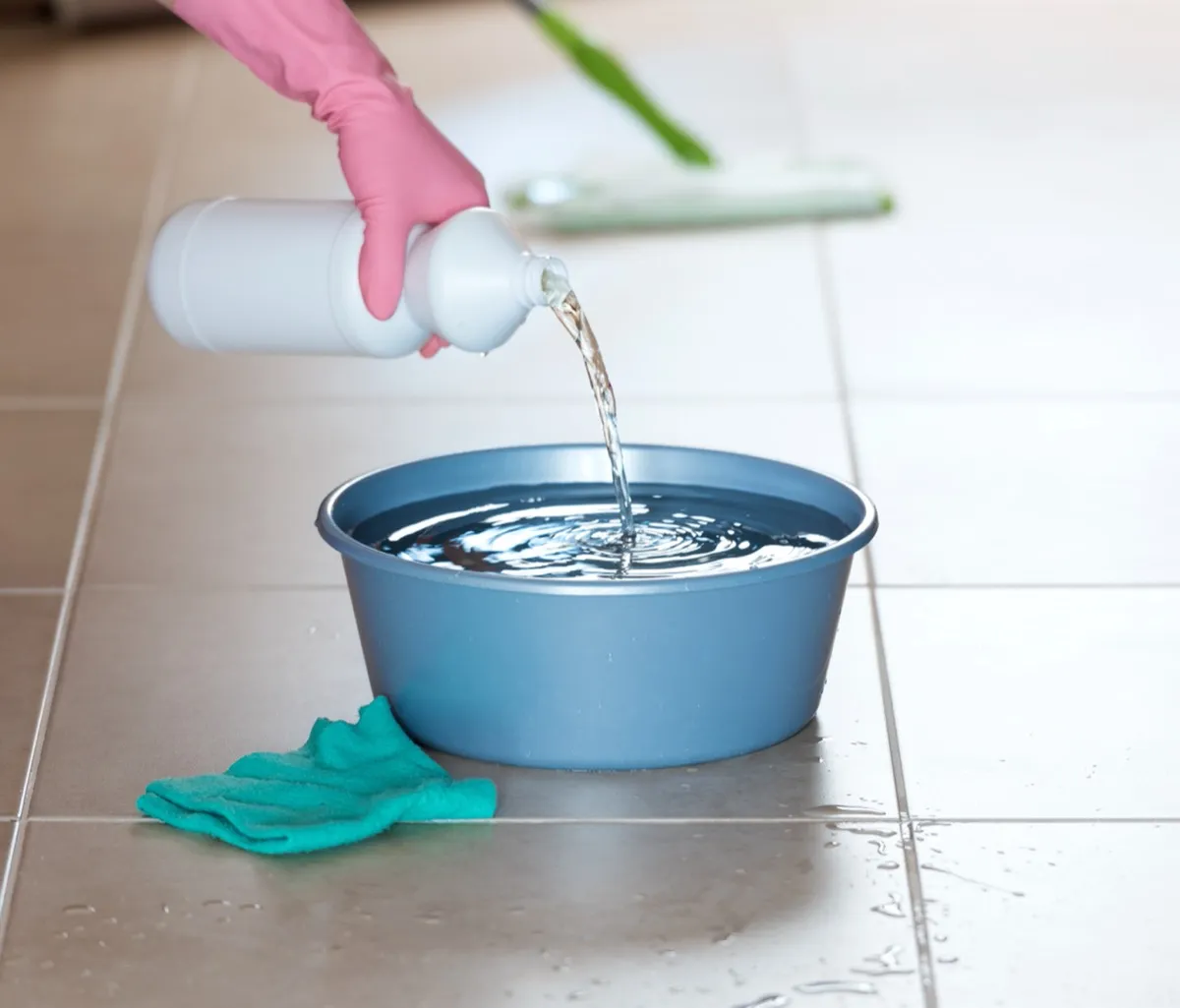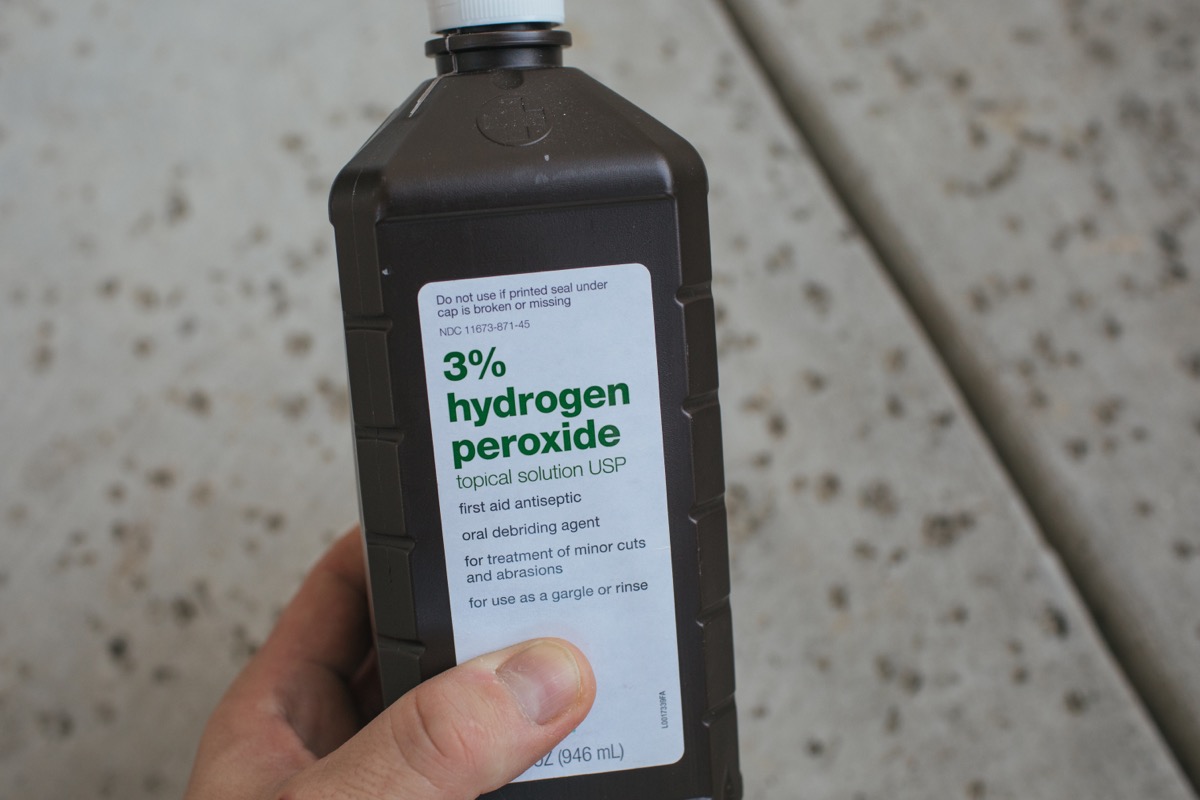Never Use These Two Cleaning Supplies Together, CDC Warns

Cleaning your home can often feel like a thankless task. The hours you spend scrubbing and scouring likely feel as though they could be better spent doing practically anything else—and you might even find yourself trying to take a few shortcuts to expedite the process. Unfortunately, if you’re using two popular cleaning products together, you’re more likely to land yourself in the hospital than to find your cleaning load significantly lightened, according to the Centers for Disease Control and Prevention (CDC). Read on to discover which cleaning products you should never combine.
RELATED: 7 Cleaning Habits That Attract Mice.
Bleach should never be used in the same space as ammonia-based cleaners.

Bleach is one of the most effective cleaning agents out there, used by millions of people for disinfecting surfaces and getting their whites spotless.
However, when used in conjunction with ammonia, a common ingredient in everything from window cleaner to pet stain removers to toilet bowl cleaners, the common cleaning agent can produce chloramine, a type of toxic gas. In some cases, this can happen accidentally when a cleaning product containing bleach is followed shortly by one containing ammonia.
“Never mix bleach with ammonia,” the CDC says, also recommending that anyone using bleach in their home do so wearing gloves and other protective gear, like goggles.
For the latest safety news delivered straight to your inbox, sign up for our daily newsletter!
Chloramine gas inhalation may be fatal.

While being in an enclosed space with any type of noxious cleaner can be irritating, exposure to chloramine gas may prove fatal.
According to a case report published in Military Medicine, 72 armed service members were hospitalized due to acute chloramine gas poisoning after combining bleach and ammonia to clean their barracks, with many of the affected individuals experiencing shortness of breath, chest tightness and pain, eye irritation, a burning sensation in the throat, coughing, and choking. Worse yet, a 2001 case report published in Forensic Science International found that an adult woman with an undiagnosed brain tumor died from chloramine toxicity while cleaning her bathroom after mixing bleach and ammonia.
Bleach should never be mixed with hydrogen peroxide, either.

It’s not just ammonia that should be kept far away from any products that might contain bleach: mixing bleach and hydrogen peroxide can have deadly results, as well.
Hydrogen peroxide is often used in cleaning products, from bathroom cleaners to all-purpose cleaning solutions, but when it combines with bleach, it can create oxygen gas, according to the American Chemical Society’s Chemical & Engineering news. “Bleach plus hydrogen peroxide creates oxygen gas so violently, it can cause an explosion,” the publication explains.
If you have used any of these chemicals together, leave the area immediately.

If you’re cleaning with bleach on its own, the CDC recommends opening windows and doors to allow for adequate ventilation, as breathing in bleach fumes can be irritating to your respiratory tract and eyes.
If you happen to mix chemicals, whether intentionally or accidentally, it’s important to leave the space as soon as possible. Experts at Johns Hopkins recommend contacting your local poison control center if anyone has been exposed to a combination of cleaning agents and calling 911 if someone has been exposed and their breathing has been affected.
RELATED: If You’re Not Cleaning These 2 Spots, You’re Attracting Spiders to Your Home.